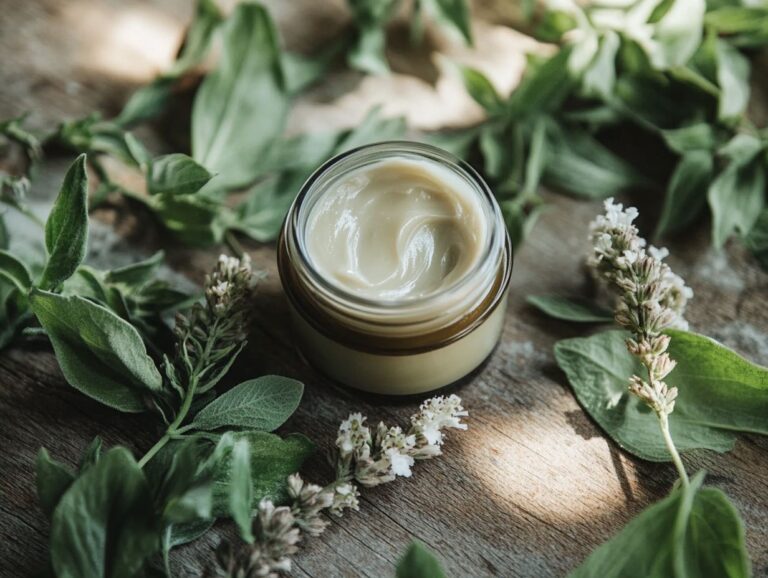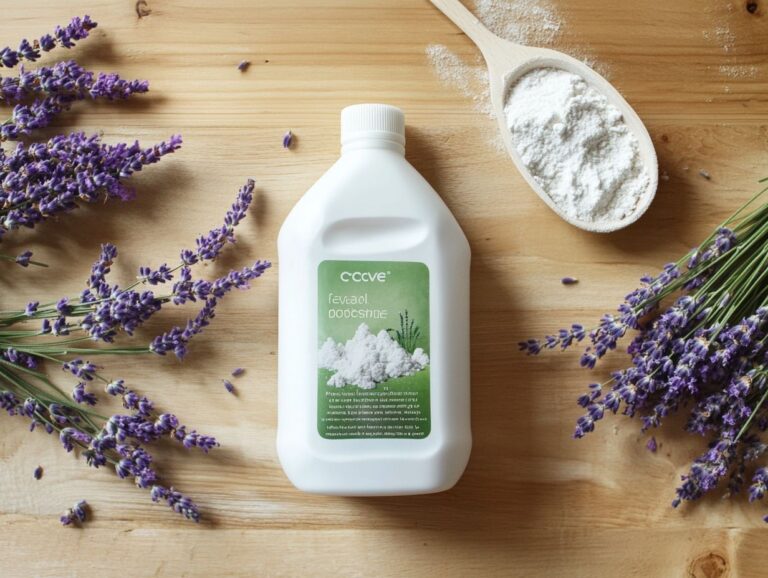Good Karma Vegan Flax Milk is a popular dairy-free milk alternative that provides a delicious and nutritious option, rich in omega-3 fatty acids and calcium. With its plant-based ingredients, it is suitable for vegans and caters to those seeking a lactose-free choice. This article will cover everything you need to know about Good Karma Vegan Flax Milk, including its ingredients, health benefits, and how it compares to other vegan milk alternatives. Whether you’re a long-time vegan or simply curious about plant-based milks, read on to find out if this product is the right choice for you.
What Is Good Karma Vegan Flax Milk?
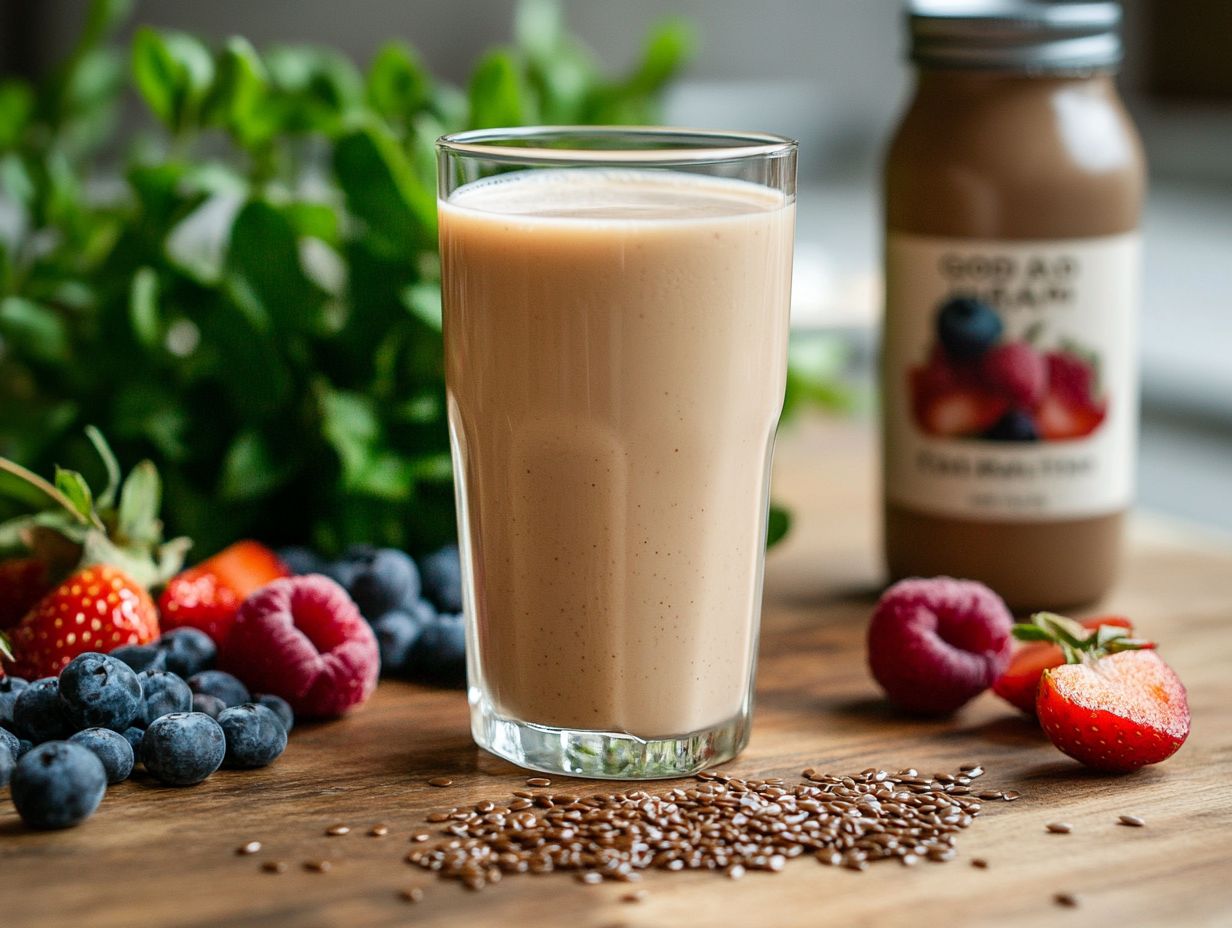
Good Karma Vegan Flax Milk is a premium plant-based milk alternative made from flax seeds, offering a creamy consistency and a wealth of nutritional benefits. It is an ideal choice for those pursuing a dairy-free lifestyle or managing lactose intolerance.
With its rich texture and delicious flavor, this milk is perfect for smoothies, cereal, and cooking, making it a versatile option for both families and individuals.
Additionally, Good Karma’s flax milk is shelf-stable, ensuring a long shelf life while remaining allergen-friendly and suitable for a variety of dietary preferences.
What Are The Ingredients Of Good Karma Vegan Flax Milk?
Good Karma Vegan Flax Milk is crafted from a carefully selected blend of high-quality ingredients, making it a delicious and nutritious vegan-friendly alternative to traditional dairy milk.
The primary ingredient is organic flaxseed, which is a powerhouse of Omega-3 fatty acids essential for heart health and brain function. It contains natural sweeteners like cane sugar and flavors derived from real ingredients, enhancing its taste while ensuring it remains free from artificial additives.
This combination not only supports a healthy lifestyle but also caters to those with lactose intolerance or dairy allergies, allowing everyone to enjoy its creamy texture. Additionally, the inclusion of vitamins such as D2 and B12 enhances its appeal, benefiting both bone health and energy levels.
This makes Good Karma Vegan Flax Milk a smart choice for anyone looking to maintain a balanced diet without compromising on flavor.
Is Good Karma Vegan Flax Milk Suitable For Vegans?
Yes, Good Karma Vegan Flax Milk is indeed vegan, as it contains no animal products, making it a safe dairy-free alternative for individuals following a vegan diet.
This delicious vegan milk alternative is suitable for various dietary restrictions and boasts a strong nutritional profile, making it a healthy choice.
Good Karma’s formula is enriched with omega-3 fatty acids from flaxseeds, which offer additional benefits that soy or almond milk alternatives often lack.
The presence of the Certified Vegan logo ensures that it meets the specific requirements for those adhering to a vegan lifestyle.
Additionally, it provides a unique taste and texture that differs from dairy and soy milk, catering to those seeking alternatives without animal products.
What Are The Health Benefits Of Good Karma Vegan Flax Milk?
Good Karma Vegan Flax Milk is a nutrient-rich option that is high in vitamins, Omega-3 fatty acids, and calcium, making it an excellent choice for individuals seeking a healthy, dairy-free milk alternative.
1. Rich in Omega-3 Fatty Acids
Good Karma Vegan Flax Milk is rich in Omega-3 fatty acids, which are essential fats that play a significant role in supporting heart health, reducing inflammation, and promoting brain function.
These fatty acids primarily come from marine sources, such as fish oil, as well as plant sources like flaxseeds and chia seeds. Incorporating Omega-3s into one’s diet can offer a variety of health benefits, including improved mood and cognitive function.
As an excellent plant-based source of these essential nutrients, Good Karma Vegan Flax Milk is a great option for those looking to avoid dairy. This milk can be easily added to smoothies or breakfast recipes, where its creamy texture and nutty flavor enhance the overall taste while providing valuable Omega-3 content to the meal.
2. Good Source of Calcium
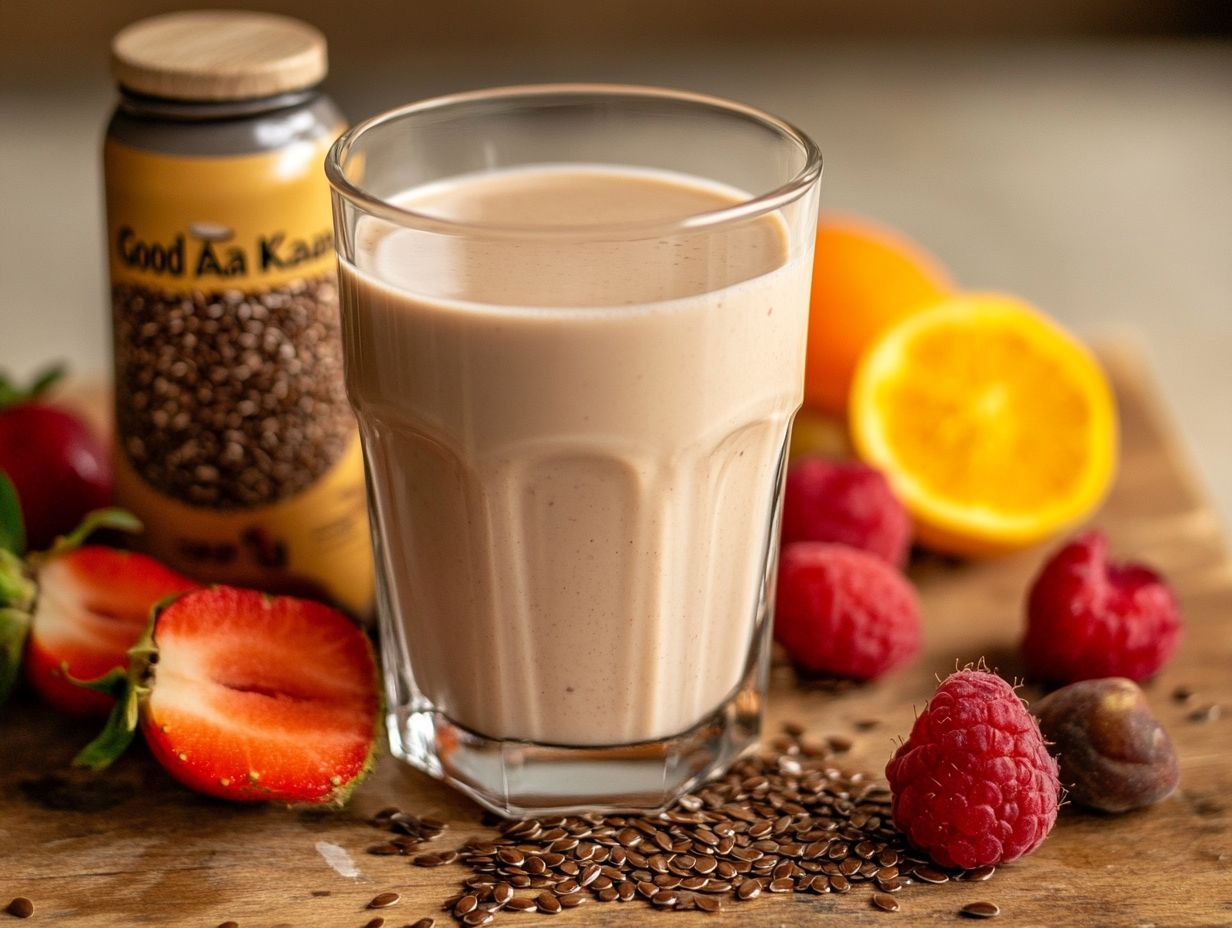
One of the notable nutritional benefits of Good Karma Vegan Flax Milk is that it serves as a good source of calcium, which is essential for the development and maintenance of strong bones and teeth, particularly for children and individuals following a dairy-free diet.
Calcium is crucial not only for bone health but also for muscle function and nerve signaling, making it an important component of a balanced diet for all family members, especially those with small children who may be picky eaters.
Good Karma Vegan Flax Milk ensures that loved ones receive this vital nutrient without relying on traditional dairy sources. It is an excellent alternative, particularly for those who are lactose intolerant or have dairy allergies, allowing families to maintain a healthy diet while enjoying the smooth, creamy goodness of flax milk.
3. Lactose and Dairy-Free
Good Karma Vegan Flax Milk is completely lactose and dairy-free, making it an excellent choice for individuals who are lactose intolerant or those who prefer to avoid dairy products in their diets.
Along with being gentle on the stomach, plant-based milk substitutes provide a creamy texture that can enhance a variety of dishes without changing their flavor.
For individuals on strict diets, such as vegans or those with dairy allergies, having a product like this can simplify meal planning.
The smoothness of Good Karma Vegan Flax Milk makes it highly versatile for use in recipes like pancakes or smoothies, allowing everyone to enjoy the same breakfast or snack without the discomfort that can arise from consuming traditional dairy products.
How Does Good Karma Vegan Flax Milk Taste?
Good Karma Vegan Flax Milk features a smooth and creamy texture along with a subtly nutty flavor, making it a delightful addition to a variety of recipes, including smoothies and breakfast dishes.
This plant-based alternative appeals to both children and adults. What sets it apart is its rich omega-3 content and unique taste, distinguishing it from more commonly used almond and soy milks.
Unlike almond milk, which has a slightly sweeter and lighter consistency, or soy milk, known for its robust and creamy profile, Good Karma’s flax milk offers a gentle earthiness that perfectly complements its creamy texture.
Many users appreciate its versatility, using it not only in cereals and coffee but also as a base for soups and sauces, noting how it enhances flavor without overpowering other ingredients. Additionally, it is well-regarded among those who seek a dairy-free option that aligns with health-conscious diets.
Is Good Karma Vegan Flax Milk a Good Alternative to Dairy Milk?
Good Karma Vegan Flax Milk is a well-balanced alternative to dairy milk, featuring an excellent nutritional profile and delightful taste. Its smooth consistency makes it ideal for use in smoothies, shakes, cereal, or cooking, all while being free from allergens and animal products.
1. Nutritional Comparison
Good Karma Vegan Flax Milk differs from traditional dairy milk in several ways, particularly in its nutritional content, including calories, protein, and Omega-3 fatty acids. These differences can significantly impact dietary choices.
For instance, Good Karma Vegan Flax Milk contains far fewer calories than dairy milk, making it an appealing option for those looking to manage their weight while still obtaining proper nutrition. Additionally, it is rich in Omega-3 fatty acids, which are beneficial for heart health and brain function.
This increase in essential fatty acids can be especially advantageous for families aiming to incorporate healthier fats into their diets, particularly for growing children and busy adults. By choosing flax milk, individuals can pursue their health goals while enjoying a delicious dairy alternative that can be used in a variety of meals and snacks.
2. Environmental Impact
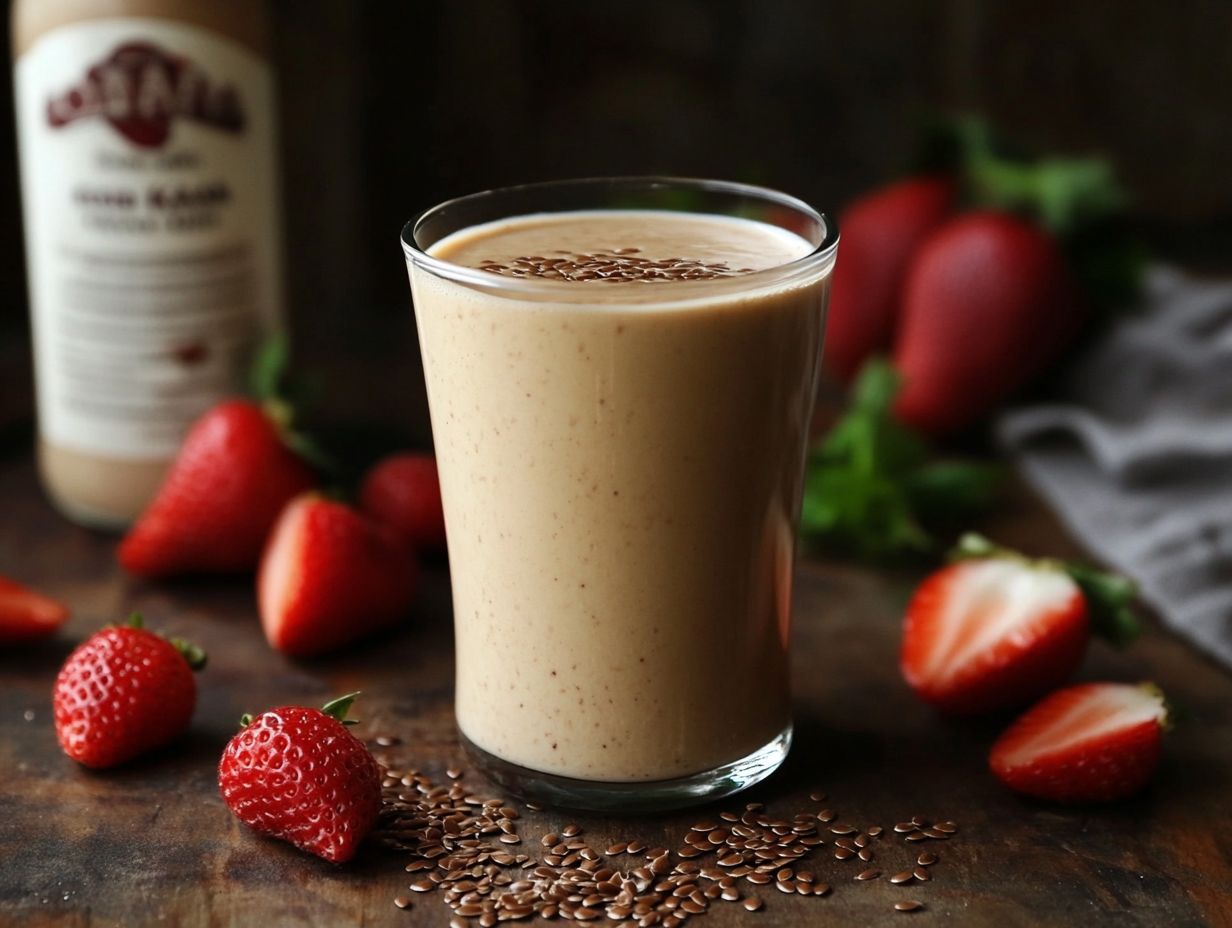
The benefits of Good Karma Vegan Flax Milk include a reduced environmental impact compared to traditional dairy farming, as it significantly lowers carbon footprints and water usage.
Studies indicate that plant-based milks require up to 90% less water than dairy milk production. Additionally, greenhouse gas emissions associated with dairy farming are nearly three times higher than those generated by plant-based alternatives.
This shift alleviates pressure on our natural resources and promotes sustainable farming practices. By choosing products like vegan flax milk, individuals can adopt a lifestyle that positively nurtures the planet and contributes to activities that enhance biodiversity and protect ecosystems.
Such choices can lead to broader positive changes for local communities and the global environment.
3. Taste and Texture Comparison
The taste and texture of Good Karma Vegan Flax Milk closely resemble those of dairy milk, with its creamier consistency making it an excellent substitute for those seeking an alternative in their daily diets.
When added to a smoothie, vegan flax milk enhances the overall mouthfeel, which is crucial for balancing the flavors of fruits and greens.
In cooking, it can be incorporated into soups and stews to provide additional body without overpowering the other ingredients.
When poured over pancakes, vegan flax milk contributes to a fluffy texture and allows syrup to slide off effortlessly, much like dairy milk.
Overall, the appealing taste and texture of Good Karma Vegan Flax Milk make it a versatile choice, attracting both casual consumers and health-conscious individuals. This dairy-free, non-dairy option offers a creamy texture and is a perfect milk replacement for those looking for a healthy milk alternative.
What Are The Potential Side Effects of Good Karma Vegan Flax Milk?
Side effects from Good Karma Vegan Flax Milk are rare and typically occur only in individuals who have an allergic reaction to flaxseeds or other ingredients used in its production. This allergen-friendly beverage is designed to cater to people with various dietary sensitivities.
It is essential for consumers to be aware of these potential reactions, especially if they are known to be sensitive to any ingredients found in this plant-based beverage. For those with lactose intolerance or gluten sensitivities, Good Karma Vegan Flax Milk provides a safe and tasty alternative.
While side effects may include gastrointestinal discomfort or bloating, allergic reactions are infrequent. The absence of dairy, soy, and gluten in this beverage makes it a safe option for most people, provided they do not have sensitivities to flaxseed. Its nutritional benefits, including Omega-3 fatty acids and vitamins, contribute to its overall appeal.
By carefully reading ingredient labels and gradually introducing new products, most consumers can expect a positive experience with Good Karma Vegan Flax Milk. Incorporating this delicious milk substitute into recipes like breakfast smoothies or cereal can enhance one’s eating habits while providing health benefits.
Where Can You Purchase Good Karma Vegan Flax Milk?
Good Karma Vegan Flax Milk is readily available at many grocery stores, including Whole Foods, Kroger, Fresh Market, and Harris Teeter, making it easy for consumers to find a healthy milk alternative. It can also be found at retailers such as Safeway and Sprouts Farmers Market, ensuring accessibility across a diverse range of outlets to suit different consumer preferences.
Additionally, consumers can conveniently order it online through Amazon and Walmart’s websites with just a click of a button. The brand frequently introduces seasonal flavors, shelf-stable options, and new product types, keeping both long-time customers and new users engaged and excited.
These variations not only enhance the experience of incorporating plant-based options into daily routines but also demonstrate the brand’s commitment to creativity and variety. Whether you’re looking for a milk substitute for your cooking or a tasty addition to your smoothie recipes, Good Karma Vegan Flax Milk has you covered.
How Does Good Karma Vegan Flax Milk Compare to Other Vegan Milk Alternatives?
Good Karma Vegan Flax Milk stands out among almond milk, soy milk, coconut milk, and rice milk due to its unique nutritional profile and health benefits, making it an excellent choice for a variety of dietary needs. Its creamy consistency and rich taste make it a versatile addition to any diet.
1. Almond Milk
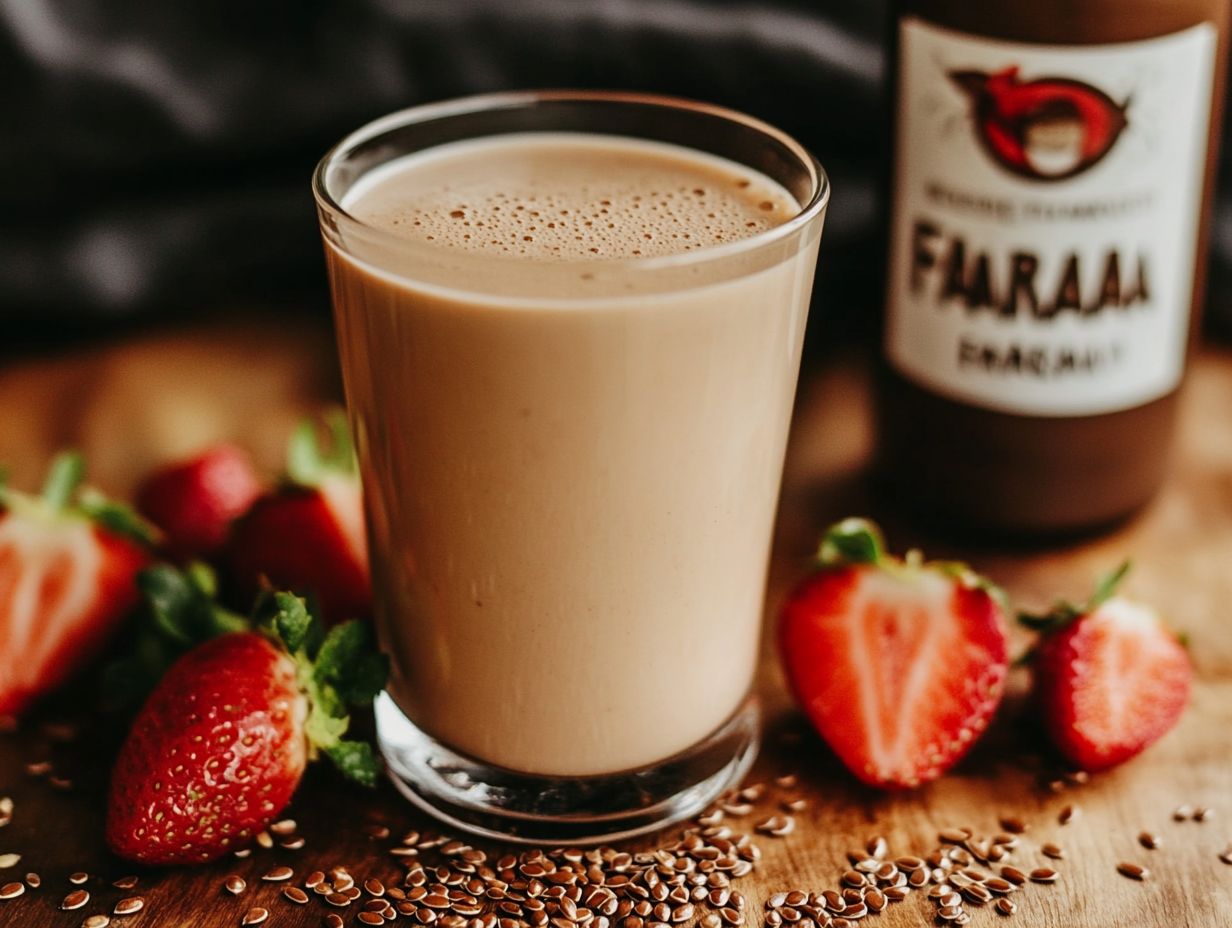
Almond milk offers certain advantages over Good Karma Vegan Flax Milk; however, its lower Omega-3 levels and lack of specific vitamins and nutrients make it less beneficial than flax milk in other areas. For those seeking a milk alternative that supports heart health, flax milk is a superior choice.
While almond milk has fewer calories and a slightly sweeter, nuttier flavor, those choosing between the two may prefer flax milk for its creamier texture and additional nutrients. This makes it an ideal option for families and picky eaters alike.
Both options are lactose-free, making them suitable for individuals with lactose intolerance, but flax milk stands out as one of the richest plant-based sources of Omega-3 fatty acids and other healthy benefits, which are beneficial for heart health.
Additionally, almond milk is often fortified with calcium and vitamin D, promoting bone health. Both almond milk and flax milk offer nutritional facts that cater to various dietary needs, making them excellent milk substitutes.
In culinary uses, almond milk is an excellent choice for smoothies and as a topping for cereal, while flax milk enhances savory dishes such as soups, creamy pasta sauces, or even recipes like pancake recipes, adding richness and nutritional value.
2. Coconut Milk
Coconut milk is a popular choice among vegan milk alternatives, but it is higher in calories and saturated fats compared to Good Karma Vegan Flax Milk, which makes the latter a healthier option. Both coconut milk and flax milk are excellent for various recipes, but flax milk’s lower calorie count makes it a preferred choice for health-conscious individuals.
With its creamy texture and subtle sweetness, coconut milk adds a tropical flavor to dishes and is commonly used in curries and desserts. It can also be included in smoothie recipes and breakfast smoothies for a tasty, superfood boost.
In contrast, Good Karma Vegan Flax Milk has a lighter consistency and a nutty flavor, making it a more versatile ingredient for those who need to monitor their calorie intake. Its unsweetened versions provide additional options for those looking to further control their sugar intake.
This plant-based milk is not only lower in calories but is also fortified with omega-3 fatty acids to promote heart health. Its allergen-friendly and gluten-free attributes make it suitable for a wide audience.
Flax milk can easily substitute for coconut milk in smoothies, cereals, or baked goods, providing a guilt-free option that satisfies both taste and nutritional needs. Flax milk’s versatility makes it an ideal choice for regular use in various cooking and baking recipes.
3. Soy Milk
Soy milk contains a higher protein content compared to flax milk. In contrast, Good Karma Vegan Flax Milk boasts a unique Omega-3 profile and a lighter flavor, making it more versatile for various health-conscious applications. Both soy milk and flax milk can be used in a variety of recipes, from breakfast smoothies to cooking dishes.
Nutritional Content:
- Soy Milk:
- High protein content similar to that of cow’s milk
- Rich in calcium and vitamin D
- Flax Milk:
- Comparable to oat milk or almond milk, but with a higher concentration of Omega-3 healthy fats
Common Uses:
- Soy Milk:
- Smoothies and cereals
- Baking and cooking as a substitute for cow’s milk
- Flax Milk:
- Offers a smoother consistency comparable to oat milk or almond milk
- Features a more neutral taste and thinner texture than soy milk
Nutritional Pros and Cons:
Flax milk is higher in Omega-3 fatty acids but has a lower protein content than soy milk. This makes it beneficial for those seeking health benefits from Omega-3 while still considering other sources of protein in their diet.
This comparison highlights the nutritional profiles of soy milk and flax milk, providing insight for those choosing between the two options.



